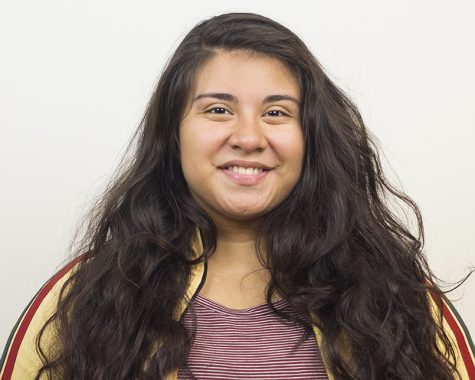Center for the Humanities book club
January 31, 2017
As part of an up-and-coming program focusing on the concept of mortality, the Center for the Humanities, in conjunction with members of the community, will be hosting a book club in various locations on and off campus.
The first book that will be read and discussed is Atul Gawande’s “Being Mortal.”
English professor C.C. Wharram, who is also the director of the Center for the Humanities, said Gawande’s book looks at the humanities perspective on the idea of death and mortality while also taking into account the medical aspect.
“(We) will be dealing with all sorts of issues regarding mortality,” Wharram said. “We are all going to die, but it’s something we don’t necessarily want to think about.”
Although the community conversations project, which the book club is a part of, has yet to get full funding, the Center for the Humanities was able to receive a microgrant from Illinois Speak Humanities Council to start the book club meetings.
With the amount of money given from the microgrant, Wharram was able to purchase enough books for the 75 participants.
Multiple meetings will be held in different locations and different dates and times so every member can participate in the community discussion.
Wharram was first introduced to the book from a friend and colleague Richard Sylvia who recommended the book to him about two years ago.
Wharram then got in contact with James Hildebrandt, the vice president of medical affairs at Sarah Bush Lincoln Health System, who also read the book and helped get the club underway.
The 75 participants vary from students and faculty to community members including employees from Sarah Bush Lincoln.
Wharram said he hopes the book club draws more people to the community conversations project and could help lift the entire humanities series off the ground for future programs.
“We want to find people that are interested and organize this into something bigger,” he said. “We want to generate community discussion. It makes me think we can do something in Coles County. Do something big.”
Angelica Cataldo can be reached at 581-2812 or amcataldo@eiu.edu





![[Thumbnail] Eastern's Old Main was quiet Thursday morning while educators who had left the office to strike picketed outside.](https://www.dailyeasternnews.com/wp-content/uploads/2025/04/Strike_01_LT_O-800x1200.jpg)











![[Thumbnail Edition] Senior Foward Macy McGlone, getsw the ball and gets the point during the first half of the game aginst Western Illinois University,, Eastern Illinois University Lost to Western Illinois University Thursday March 6 20205, 78-75 EIU lost making it the end of their season](https://www.dailyeasternnews.com/wp-content/uploads/2025/03/WBB_OVC_03_O-1-e1743361637111-1200x614.jpg)





















































